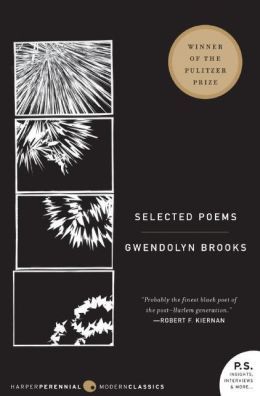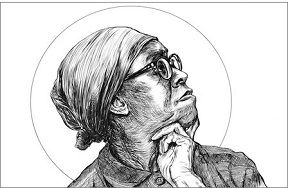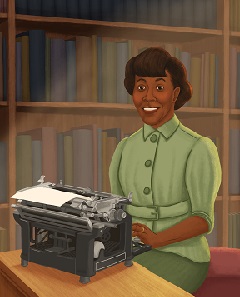“But I feel now that it was better for me to have grown up in Chicago because in my writing I am proud to feature people and their concerns—their troubles as well as their joys.”
(“Paul Angle and Gwendolyn Brooks Interview” in We Asked Gwendolyn Brooks about the Creative Environment in Illinois, 1966)
Celebrating Gwendolyn Brooks@100 Interactive Online Exhibit, The University of Illinois Rare Book and Manuscript Library
Gwendolyn Brooks: A Poet’s Work in the Community Online Exhibition. The Morgan Library & Museum
Promised Land? The Black Chicago Renaissance and After by James Hurt
Photographs of Chicago: 1918-1950 from the Collection of the Smithsonian National Museum of African American History and Culture, Smithsonian Learning Lab
“A Peek at Gwendolyn Brooks’ Chicago, Then and Now,” by Adam Morgan in Chicago Magazine
Home Histories: The Gwendolyn Brooks House, by Abigail Bazin in Southside Weekly
Gwendolyn Brooks, Lift Every Voice: Why African American Poetry Matters
“An Introduction to Gwendolyn Brooks,” by Elizabeth Alexander
“Frost? Williams? No, Gwendolyn Brooks,” From the Pulitzer Files
“Why Gwendolyn Brooks Will Live On Forever,” by Angela Jackson
“Gwendolyn Brooks, 83, Passionate Poet, Dies,” Literary Obituary from the New York Times
Biographies of Brooks
- A Surprised Queenhood in the New Black Sun: The Life & Legacy of Gwendolyn Brooks, Angela Jackson
- Gwendolyn Brooks: Poetry and the Heroic Voice, D.H. Melham
- A Life of Gwendolyn Brooks, George Kent
- Religious Allusion in the Poetry of Gwendolyn Brooks, Margot Harper Banks
- Exquisite: The Poetry and Life of Gwendolyn Brooks, Suzanne Slad and Cozbi A. Cabrera (for children)



/prod02/channel_1/media/christ-at-the-core/Brooks-Photo-3-920X613.png)
/prod02/channel_1/media/christ-at-the-core/Brooks-Photo-2-920X613.png)
/prod02/channel_1/media/christ-at-the-core/Brooks-at-her-typewriter-920X613.jpg)
/prod02/channel_1/media/christ-at-the-core/Gwendolyn-Brooks-Photo-760X760.jpg)
